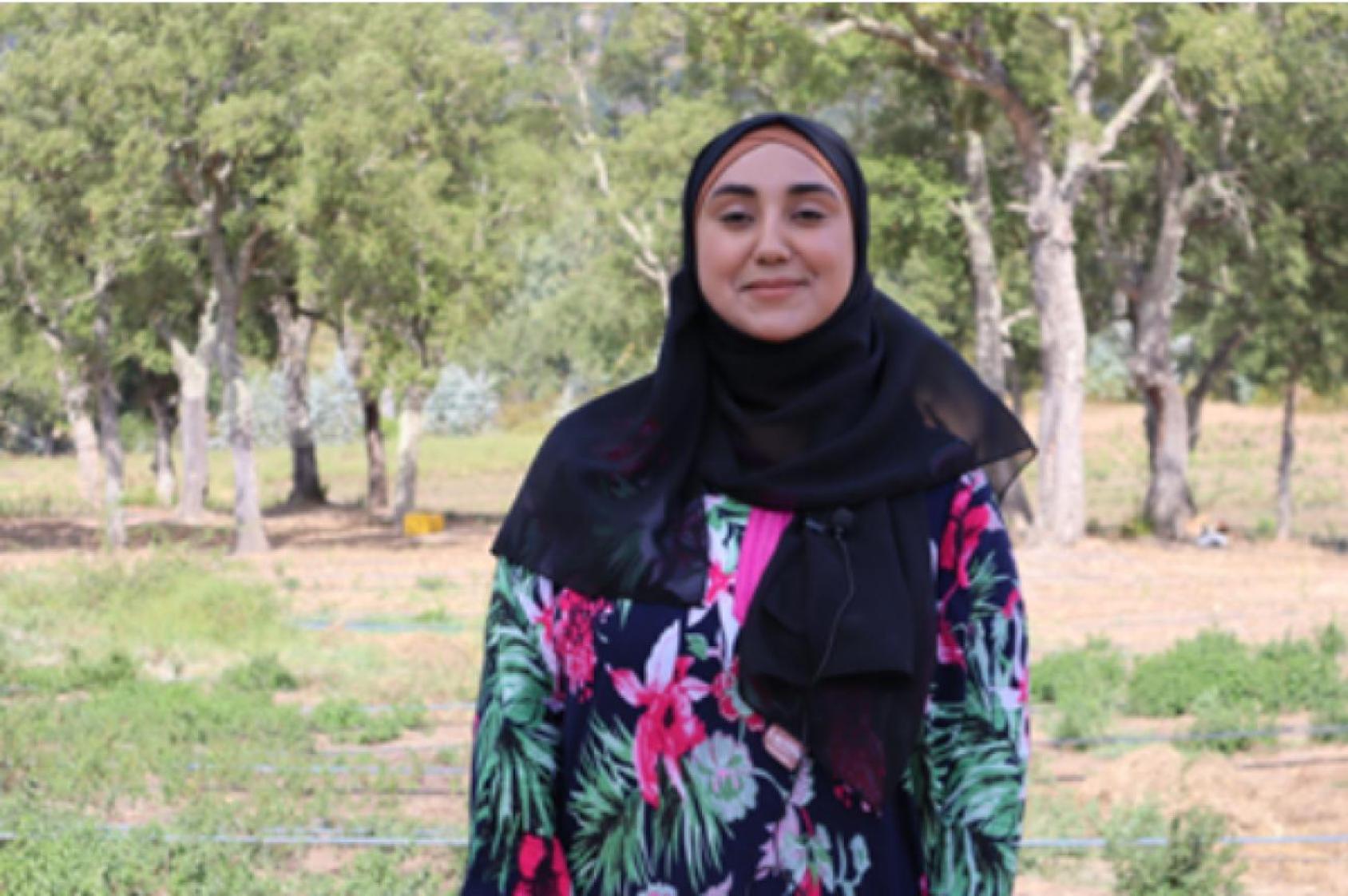Transforming Pain into Hope: Rural Women at the Heart of Change in Tunisia
Every day, rural women in Tunisia are proving that transformation begins within communities. On the International Day of Rural Women, their stories remind us of courage, determination, and the strength to forge new livelihoods and build resilience for their families.
Hanene: From Survivor to Entrepreneur
“When I was eight years old, , my parents took me out of school. I had to take care of my brothers, the sheep, the kitchen, and my grandmother.” The memory is still vivid in Hanene’s mind. While other children were learning how to read and write, she was learning how to survive — until she turned eighteen.
One spring day, while working in the field, she crossed paths with the director of the regional agricultural training center who offered her the chance to learn to be a successful farmer.
“Learn? That word came to me like a revelation that I cried in the field,” Hanene recalls.
Her enthusiasm was soon met with her father’s disapproval, however, was quickly met with refusal from her father: “The only girl among 24 boys! What would the villagers say?” Hanene did not give up. She convinced the girls of the village to enroll and eventually joined the training, with the support of an agricultural engineer.
With support from the Joint Programme for the Economic Empowerment of Rural Women (JP RWEE)—implemented by the United Nations in Tunisia—Hanene learned cow husbandry, beekeeping, tree pruning, seed preparation, grafting techniques, and grain cultivation. She earned her agricultural aptitude certificate and received a scholarship of 120 dinars per month. Later, she got married and began working in the fields of her husband’s family in Nefza.
Today, Hanene is no longer just a survivor, but an entrepreneur and a source of inspiration for the women in her village. She brings together women farmers in her area, shares her knowledge, and has created a solidarity network of around ten women who manage the Oula—the winter supply of crops and harvest for local families.
Ghada: Turning Challenges into Opportunity
A few hundred kilometers away in Jendouba, Ghada, an English graduate, is forging her own path despite difficult challenges.
“My mom and dad are sick. My brother dropped out of school. I couldn't leave them alone,” she confides.
Instead of giving in to discouragement, she turned to the natural wealth of her region. Through the JP RWEE project, she joined a professional cooperative and began working in the distillation of aromatic and medicinal plants.
“I’m beginning to master distillation. Every day, I discover the richness and diversity of plants,” she says with determination. “This project gives me the means to be independent… I want to compensate for my family’s sacrifices and help other women in my region.”

Empowering Rural Women Across Tunisia
Implemented by the Food and Agriculture Organization (FAO), World Food Programme (WFP), UN Women, and the International Fund for Agricultural Development (IFAD), the Joint Programme has already reached more than 2,200 women in the governorates of Kairouan and Jendouba.
The programme’s integrated approach combining vocational training, access to productive resources, leadership development, and entrepreneurial support enables women to transform not only their own lives, but also those of their families and communities.
These two journeys, different yet united by the same quest for autonomy, illustrate how empowering rural women strengthens entire communities.
“One woman’s resilience is the resilience of an entire community,” reminds one of the project’s core principles.
With this support, Hanene dreams big for her three primary school-aged children:
“I want them to grow up with knowledge, not submission.”
As for Ghada, she now sees her future in terms of opportunity, not sacrifice.
Their stories are not just individual struggles. They embody a future where rural women play a central role in the development and transformation of their communities.
This article was first published here. For more information about the UN's work in Tunisia, visit tunisia.un.org.

